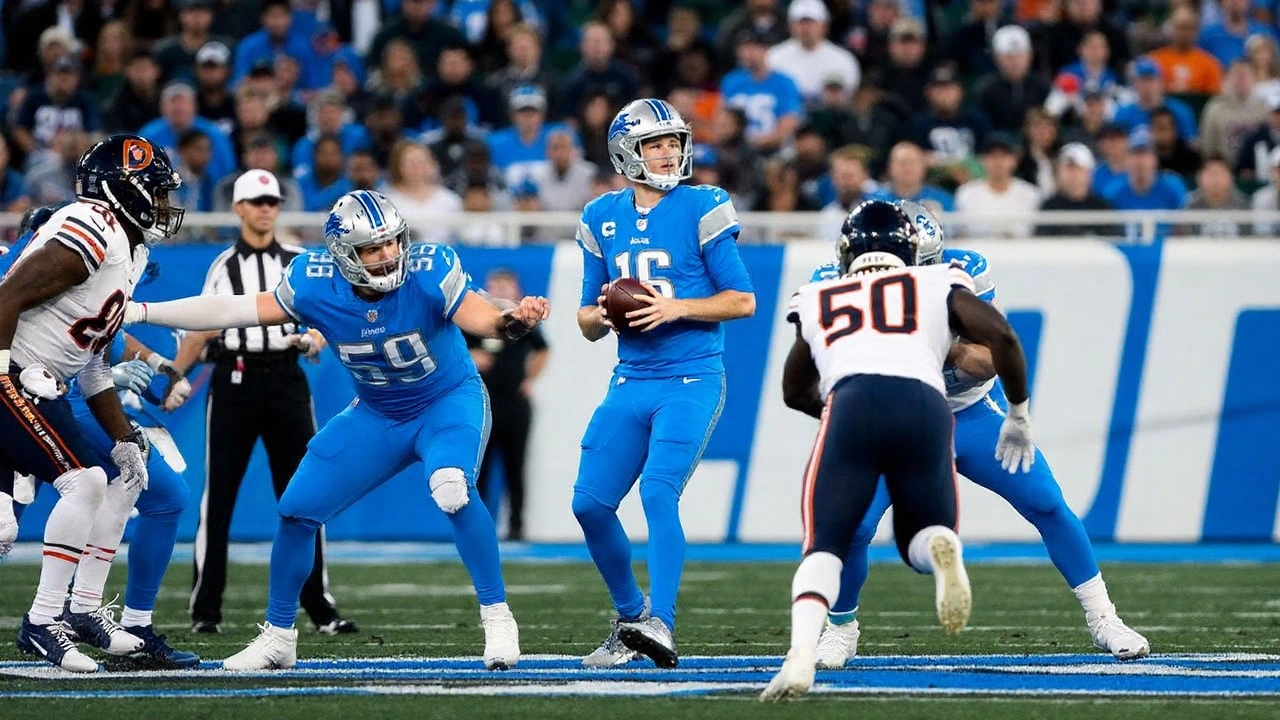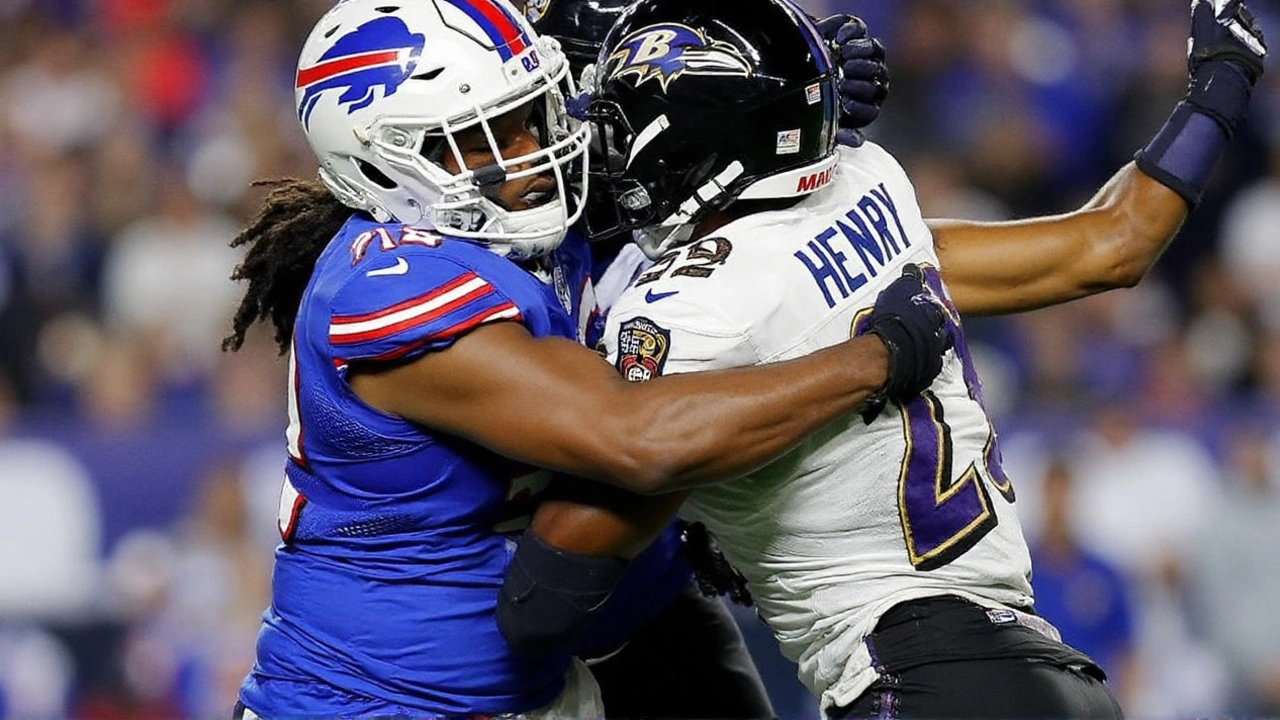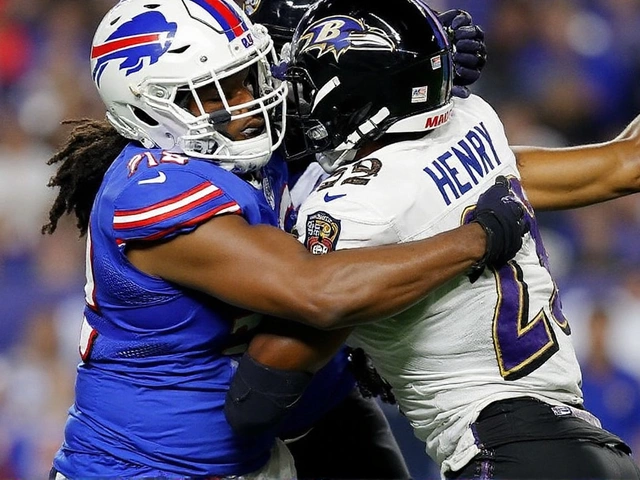Ravens' offensive firepower after the Henry trade
When the franchise swapped a handful of draft picks for Derrick Henry, the buzz on the East Coast was deafening. Fans imagined a one‑two punch: Henry’s bruising, veteran running style paired with Lamar Jackson’s dual‑threat wizardry. The numbers from the 2024 season confirmed that vision. Henry rushed for a career‑high 1,921 yards and 16 touchdowns, while Jackson added a new passing dimension that pushed the team’s total offense to the top of the league.
What set the Ravens apart wasn’t just raw yardage; it was efficiency. They averaged a whopping 5.8 yards per carry – a figure rarely seen in the Super Bowl era. That balance forced defenses to respect both the ground game and the quarterback’s legs, opening up play‑action passes that often turned into big gains. Even when faced with stout defenses, Baltimore’s offense rarely stalled, scoring at least 20 points in 14 of 17 regular‑season games.
Yet, that same potency has exposed a new set of problems. The more a team leans on a single scheme, the easier it becomes for opponents to craft a game plan. In the Ravens’ case, the lesson has been learned the hard way – through seven defeats that have left fans scratching their heads.

Patterns behind the seven losses
It’s tempting to chalk every loss up to bad luck, but a deeper dive shows recurring themes that Buffalo, Detroit, and even Pittsburgh have exploited.
- Late‑game breakdowns: Three of the seven defeats featured the Ravens surrendering a double‑digit lead in the fourth quarter. The most glaring example was the 2024 divisional loss to the Bills, where a 21‑point cushion evaporated after a series of stalled drives and defensive lapses.
- Turnover trouble: While Henry’s 2024 season saw only three fumbles, the 2025 campaign has seen a dramatic reversal – three lost balls in the first three games. Those turnovers have directly led to 17 points for the opposition.
- Predictable play‑calling: Teams that have studied film notice a heavy reliance on inside runs and play‑action passes. The Lions, for instance, loaded the box in Week 2, forcing Baltimore into uncomfortable third‑down situations that resulted in a 38‑30 loss.
- Pass‑rush pressure: When opposing defensive lines generate consistent pressure, Jackson’s mobility alone can’t compensate. In Buffalo’s playoff game, a relentless 4‑sack effort disrupted the rhythm of both the run and the pass.
- Special teams miscues: A missed punt and a blocked field goal in the 2024 season added two extra points against the Ravens, highlighting that errors outside the offense can swing tight games.
Each of these themes isn’t isolated. They feed into one another, creating a domino effect that often ends with a loss despite the team’s statistical superiority. For example, a turnover deep in Ravens territory not only hands the ball to the opponent but also forces the defense onto the field earlier, exacerbating the fatigue that leads to late‑quarter breakdowns.
Coaching adjustments have been attempted, yet they sometimes feel like band‑aid rather than a cure. Head coach John Harbaugh has emphasized ball security in practice, but Henry’s recent fumbles suggest a need for a different approach – perhaps a shift in hand‑off technique or increased emphasis on protecting the ball under contact.
On the defensive side, the squad has remained solid in many games, ranking in the top ten for points allowed. However, the inability to close out games has exposed a lack of depth, especially when facing high‑tempo offenses that keep the defense on the field for extended periods.
Looking ahead, the Ravens face a crossroads. Maintaining the Henry‑Jackson partnership is essential, but the team must also diversify its play‑calling and tighten up ball security. If opponents continue to find seams in the Ravens’ armor, the season could slip into a pattern of ‘great offense, disappointing finish,’ a narrative that has haunted Baltimore for decades.
For now, fans can take solace in the fact that the talent level remains elite. The question is whether the coaching staff can translate that talent into a consistent winning formula before the next playoff run comes around.




Write a comment